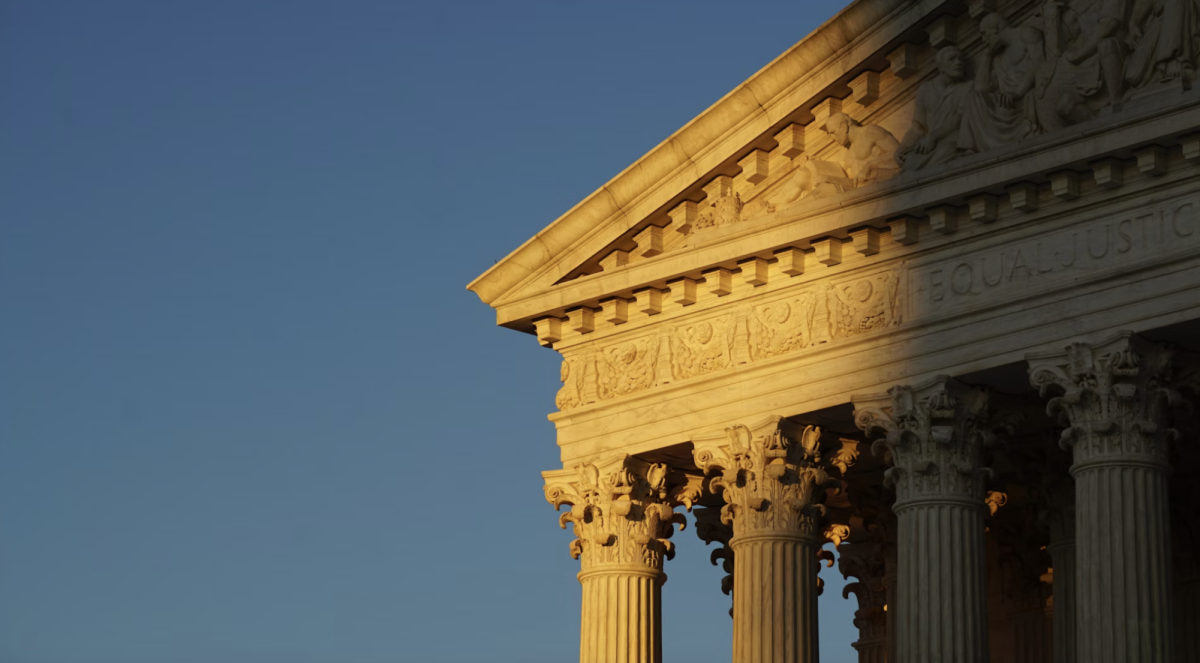On Apr. 25 is National Arbor Day, or maybe National DNA Day. It could also be World Malaria Day, or perhaps World Penguin Day. Actually, Apr. 25 is the date for all of these holidays.
But isn’t there usually only one or two celebrations occurring on the same day? Like Independence Day on July 4 and Christmas on Dec. 25? Are there really other celebrations occurring on these days?
In truth, there can be more than five different holidays on one day, with almost every day having at least one celebration. This phenomenon can be credited to the combination of federal and unofficial holidays. When a federal holiday arrives, most government offices, post offices, and banks are closed. States and businesses will acknowledge the holiday but are not required to give employees the day off. These days include New Year’s Day and Labor Day.
In special cases, the President of the U.S. can declare a day of observance with their presidential proclamation. These “legal holidays” are not permanent federal holidays until they are approved by Congress. Some examples are National Pearl Harbor Remembrance Day on Dec. 7 and Patriot Day on Sep. 11.
Federal holidays contrast with unofficial holidays in the U.S. Unofficial, or informal, holidays are not formally recognized by governments as official holidays. They are, however, still commemorated and adored by groups of people.
Unofficial holidays, such as Deep Dish Pizza Day and Safety Pin Day, may seem random and whimsically made, but they do have an essential purpose. They succeed in the goal for every holiday-to bring awareness to the topic being starred by the celebration. It brings attention to a subject that would have lacked recognition without it.
April provides perfect examples to represent four different reasons to institute unofficial holidays.
They Brings Forth Action
The history of many unofficial holidays are rooted in the fight for greater effort for their cause, which they reach with varying degrees of success.
For example, on Apr. 25, World Malaria Day will be celebrated around the globe. A holiday that sheds light on the fatal disease, it originally started out as Africa Malaria Day first observed in 2001. In 2007, the World Health Assembly approved the idea to transform the name to World Malaria Day to acknowledge its worldwide impact. Ever since the holiday has been made global, mobilization to combat Malaria propelled. More communities educate their neighbors on the disease, the number in mosquito net distribution campaigns expanded, and the money made from fundraising was boosted, leading to the discovery of new treatment methods and drops in malaria cases.
At the same time, the U.S. is also celebrating National Arbor Day. Usually celebrated on the last Friday of April, this year on the 25th, it was started by nature lover Julius Sterling Morton in 1872. It was recognized as a legal holiday in Nebraska by 1885 and later became acknowledged by all 50 states. It is a day to inspire people to plant trees of all kinds and appreciate the beauty of nature. Every year, millions of trees are planted, especially through schools.
The United Nations endorses selective holidays as well. The United Nations General Assembly designated Apr. 2 to be World Autism Awareness Day back in 2007, making it an official holiday but not one like a federal or public holiday. This day was created to encourage freedoms and human rights for autistic individuals and has motivated advocates to lobby for policies promoting equality and inclusion.
They Mark Accomplishments
Unofficial holidays are created to immortalize the day of accomplishment. Whether it be an anniversary or a legendary achievement, these holidays become a bookmark in history. However, they are rarely established, such as World Health Day on Apr. 7, referring to the anniversary of the founding of the World Health Organization (WHO) in 1948.
National DNA Day on Apr. 25, was a day to signal the milestone of the discovery of DNA in 1953 and the completion of the Human Genome Project in 2003, which mapped the first sequence of the human genome. The day was initially a one-time celebration declared by Congress in 2003, but every year after, the National Human Genome Research Institute continues to commemorate it.
World Penguin Day, also on Apr. 25, symbolizes the start of the Adélie penguins’ northern migration. It was started at the McMurdo Station, a research facility on Ross Island off the coast of Antarctica. The holiday now includes all penguin species to rally awareness for their susceptibility to extinction.
They Provide Marketing Opportunities
Creating unofficial holidays has been used as a marketing tactic for modern-day companies. Establishing a specific day for their product will increase consciousness of its existence and allow companies to promote special deals with their product to commemorate the day and drive in customers.
For example, Apr. 30 was designated to be National Bubble Tea Day by Kung Fu Tea in 2018 to celebrate the day the company was founded. The company swiftly jumped to social media, posting photos of their drinks trying to entice viewers to come to their shops.
They Are Done Through Love
Most of the unofficial holidays that exist are done to shine light on a particular topic that the public is passionate about. For those that hold a strong desire to share this passion to the world, they search for this path to make their dream come true.
Numerous holidays are dedicated solely to food and only food, such as National Peanut Butter and Jelly Day on Apr. 2 and National Chocolate Mousse Day on Apr. 3. The history to how these holidays were developed are not clear, but one thing’s for sure: these types of holidays provide the opportunity for food lovers to worship these meals with pure affection with their friends and family.
Some holidays are held even closer to people’s hearts than others. In 1995, Claudia Evart, a native New Yorker, established National Siblings Day designated on Apr. 10. Done through the Siblings Day Foundation, Evart wanted to appoint one day to remind people to appreciate their siblings. After losing two siblings in unrelated accidents, Evart wanted people to cherish their time with their loved ones, choosing Apr. 10 as a tribute to her late sister’s birthday.
How Are These Holidays Established?
For general official holidays to be established they must go through an extensive process. You must contact your local congressperson and draw up a proposal that may be presented to Congress. The bill, if chosen, will be reviewed by the Senate or House of Representatives for a vote on whether to approve it or not. If it is approved by both chambers, then it is delivered to the President to decide to certify the holiday.
To establish informal holidays, on the other hand, is a less grueling process. You just have to fill out a form with the information pertaining to your holiday. Details such as the name of the day, motive to create it, and background knowledge on the topic are all crucial to guarantee your day’s approval. These applications may be submitted to numerous websites such as National Day Calendar and National Day Archives to be “formally” registered.
Each holiday, whether official or unofficial, holds a unique history unmatched by any other. They are born from the core purpose to raise awareness, as anything deserves its time to shine.








